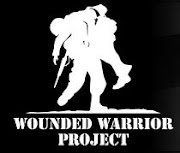Shared combat experiences forge bonds between soldiers, whose safety and lives depend on one another. 1st Lt. David Tiedeman and Sgt. Robert Betterton of the Tennessee Army National Guard found themselves depending on each other as they confronted a determined, dangerous enemy in Iraq. “He did save my life, there is no doubt about that,” Betterton told a reporter. Betterton was referring to the actions of his fellow soldier, Tiedeman. If not for the actions of both of these soldiers, the casualties sustained by their U.S. and Iraqi comrades would have been significantly greater.
Securing munitions has been a major task for Coalition forces since the fall of Saddam Hussein. In April 2005, Tiedeman and Betterton’s twelve soldier team, along with two Iraqi companies, was conducting a search for weapons stolen from an Iraqi base. As the two Iraqi companies were searching a bunker complex, Tiedeman's team and one Iraqi gun truck headed further south to search another area. As they moved south of Balad Ruz, an area northeast of Baghdad, insurgents ambushed the Americans and Iraqi gun truck with mortars, machine guns, RPGs, and small arms fire. The enemy fire immediately disabled two trucks carrying Iraqi forces. Tiedeman stepped out of his vehicle and directed return fire against the enemy, with Betterton unleashing fire on the RPG gunners. Due to the force of the enemy’s assault, Tiedeman guided his team out of the line of fire to an area where it could plan a more organized counterattack. Reacting quickly, Tiedeman then directed the counterassault, as well as air cover, which took out the enemy’s heavy weaponry. The team then dismounted to clear the remaining insurgents from the surrounding canals. After enemy fire hit two fellow soldiers, Tiedeman ran across the kill zone to administer aid. While treating his comrades, Tiedeman stopped twice to shoot back at the enemy that was targeting him and the wounded soldiers.
Betterton saw insurgents targeting Tiedeman and the wounded soldiers. The sergeant then placed himself in harm’s way to distract the enemy. After jumping into a ditch to better target the insurgents, Betterton killed the RPG gunner that was taking aim at Tiedeman and two other guardsmen who were providing medical attention to a fallen soldier. Betterton’s intervention allowed for the evacuation of the soldiers. Betterton exposed himself to great danger; he had been shot eight times in the hand, stomach, and leg. Incredibly, Betterton kept firing at a sniper who continued targeting him, even though he was alone and could not move.
Tiedeman observed Betterton’s situation and, once again, ran across the battlefield, braving a barrage of bullets to reach him. Tiedeman had left behind his primary weapon to make himself more mobile. Betterton repeatedly told Tiedeman to leave him, but the lieutenant refused. Tiedeman blocked the enemy’s line of fire with the body of a dead insurgent, and helped neutralize the threat to Betterton with a grenade. Seeing the break in the action he was looking for, Tiedeman carried Betterton to safety.
Tiedeman and Betterton’s heroism resulted in the deaths of 17 insurgents. In addition, their actions led to the elimination of what Tiedeman had described to WREG-TV as “basically an insurgent training camp” that had been wreaking havoc across central Iraq. On Aug. 25, 2007, in a ceremony at Naval Air Station Mid-South, the Tennessee National Guard awarded Tiedeman the Silver Star, while Betterton received the Bronze Star with Valor. Tiedeman is currently employed by the Department of Homeland Security, while Betterton recently volunteered for another tour of duty in Iraq.







No comments:
Post a Comment